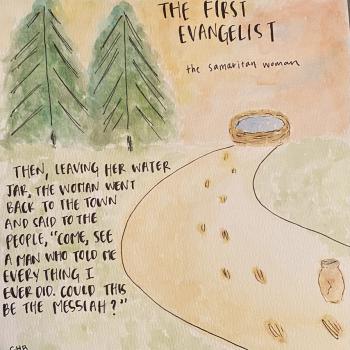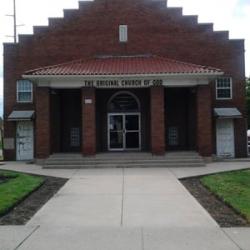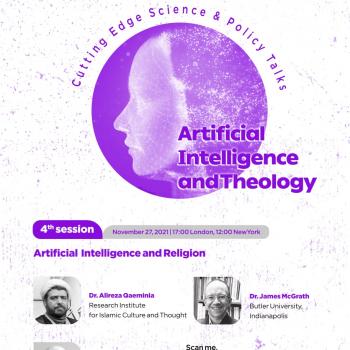People in religious traditions with major holidays in April this year are experiencing disruption. To some it seems surreal, but to others (as I’ll explain more about below) it may seem eerily familiar. While some clergy contemplate when and whether to put themselves in harm’s way to comfort those who are suffering and dying, other clergy have shown themselves willing to put others in harm’s way in order to ensure that the weekly offering is not impacted too detrimentally, and/or to depict themselves in a self-aggrandizing manner as culture warriors persecuted for their faith. Some politicians have done likewise.
As someone who has studied and/or been connected in some way with the history of a genuinely persecuted church and its leaders, the latter sorts of actions sadden me immensely, and all the more so because of the irony. People have been put in solitary confinement or imprisoned as a group cut off from others because of their faith. Yet some, when asked to do something much less restrictive in the interest of the welfare of others, refuse to do so, and respond with much less grace and kindness than many have when experiencing actual persecution.
I’m thinking that perhaps the appropriate series of studies, whether for on this blog, other blogs, a collaborative multi-blog series, individual congregations, or all of the above, might be the history of Christian isolation. It could include things like Richard Wurmbrand’s sermons and meditations in solitary confinement, and Dietrich Bonhoeffer’s Letters and Papers from Prison, but also things written by monastics such as those in the ancient church who withdrew to live isolated lives in the desert. Here’s an example of one of the many brief stories from the latter tradition:
A brother came to visit Abba Sylvanus at Mount Sinai. When he saw the brothers working hard, he said to the old man, “Do not work for food that perishes, for Mary has chosen the good part.” Then the old man called his disciple, “Zachary, give this brother a book and put him in an empty cell.” Now when it was three o’clock the brother kept looking out of the door to see if someone would call him for the meal. But nobody called him, so he got up, went to see the old man, and asked: “Abba, didn’t the brothers eat today?” The old man said, “Of course we did.” “Then why didn’t you call me?” he said. The old man replied, “You are a spiritual person, and do not need that kind of food, but since we are earthly, we want to eat and that’s why we work. Indeed you have chosen the good part, reading all day long, and not wanting to eat earthly food.” When the brother heard this he repented and said, “Forgive me, Abba.” Then the old man said to him: “Mary certainly needed Martha, and it is really by Martha’s help that Mary is praised’.
That one grabbed my interest because of its connection with a book I’m writing. But others might be even more generally interesting in the present context. I think for instance of what Bonhoeffer wrote about “religionless Christianity.” When isolation or imprisonment intervene in one’s life, they interfere with “religion,” and so it is natural to ask what Christianity means in the absence of those things.
Cyprian’s writings in the context of plague might also be appropriate. What works, whether from among those listed above or others I’ve not mentioned, would you include in a “syllabus” for a Sunday school class or similar context? Would you be interested in a series of blog posts, Zoom meetings, or something else that focused on discussing these sorts of writings? If so, let me know – perhaps we can make it happen!
Also related to this topic:
https://www.redletterchristians.org/how-the-war-on-christmas-became-the-war-on-easter/
A call for papers about religion and pandemic
Also related to the relevance of Bonhoeffer to the current situation:
https://thewayofimprovement.com/2020/04/05/dietrich-bonhoeffer-on-stupidity/
See as well these articles about the oldest known Easter sermon by Melito of Sardis.
https://aleteia.org/2019/04/25/what-the-oldest-easter-homily-we-have-tells-us-about-god/
The Book of Common Prayer for the current crisis
Learning in Coronavirus Time: Rereading C.S. Lewis’s Famous Sermon
Preaching online in virtual church
Also somewhat related:
https://www.episcopalcafe.com/a-broken-and-contrite-heart-psalm-5117/
https://www.episcopalcafe.com/death-and-grieving-in-a-pandemic/
And finally, some of my Butler colleagues offer suggestions on caring for mental health during the pandemic













